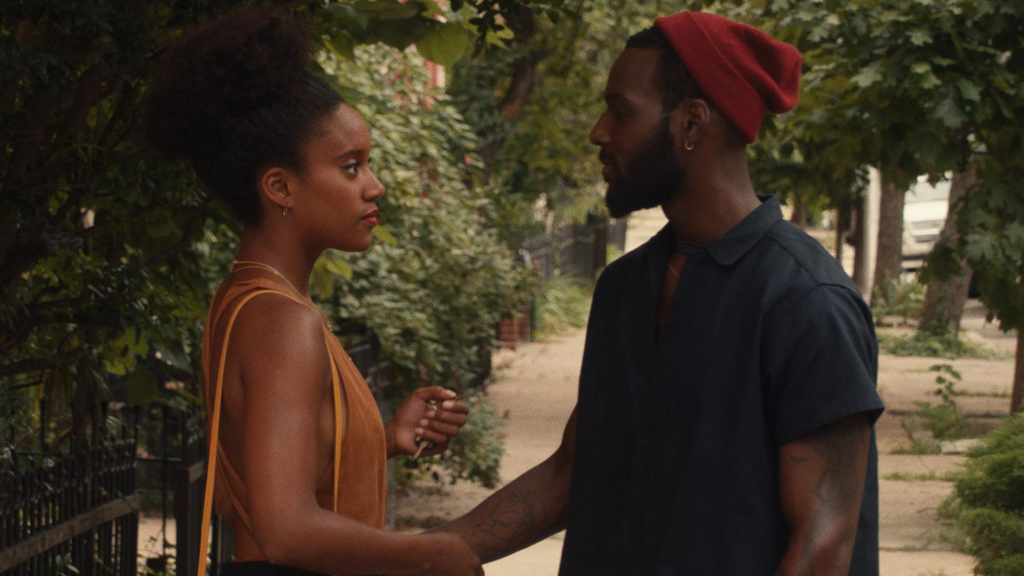Angel Kristi Williams is a writer and director. She’s a Film Independent Project Involve Directing Fellow and was the recipient of the Sony Pictures Diversity Fellowship. This year she was selected to participate in Sundance Institute’s Momentum Fellowship. Most recently she directed an episode of “Colin in Black and White,” Ava DuVernay and Colin Kaepernick’s limited series for Netflix, and she’s set to helm the Season 2 opener of “Cherish the Day” for OWN.
“Really Love” marks Williams’ feature directorial debut. Now streaming on Netflix, the film was selected to play in narrative competition at SXSW and won the Special Jury Recognition for Acting for co-stars Kofi Siriboe and Yootha Wong-Loi-Sing.
W&H: Describe the film for us in your own words.
AKW: “Really Love” is a story about the romantic relationships that have changed your life, challenged you, and allowed you to grow. It’s my ambition for what love could look like.
W&H: What drew you to this story?
AKW: After meeting Felicia Pride and reading the screenplay I was immediately drawn to the story. I grew up in Baltimore so D.C. is very familiar to me — it feels like home. Her writing was so vivid in the way the characters spoke, and I felt like I knew them. It excited me to tell a story about people I knew.
W&H: What do you want people to think about after they watch the film?
AKW: If the film reminds people of their own love stories, that’d make me happy.
W&H: What was the biggest challenge in making the film?
AKW: The biggest challenge making the film was shooting it in 18 days with a single camera. I’m grateful for such an incredibly talented cast and crew.
W&H: How did you get your film funded? Share some insights into how you got the film made.
AKW: “Really Love” was financed and produced by MACRO, led by Charles King. One of my producers, Aaliyah Williams, shared the script with him and he wanted to meet, so Felicia and I went in and pitched the film. The next day after the meeting I got a call from Charles directly and he said, “I’ve met a lot of filmmakers, but never before have I been so impressed with a filmmaker’s vision for a project and I want to fully finance your film.”
W&H: What inspired you to become a filmmaker?
AKW: I’ve enjoyed telling stories since I was very young, but around age eight my late father brought home a VHS camcorder. I taught myself how to use it and I never put it down.
W&H: What’s the best and worst advice you’ve received?
AKW: The best advice I’ve received when it comes to directing is to approach the work one day and every scene one at a time, remain present, and stay focused on what’s in front of you — don’t get too far ahead.
The worst advice I’ve ever received is to have a backup plan in case your dreams don’t come true. I think anyone who discourages you from dreaming is not someone you want around.
W&H: What advice do you have for other women directors?
AKW: My advice to other women directors is to surround yourself with collaborators who love and respect you and who value your input and your opinions. Build your tribe of other women that you can call on, mentor, and learn from.
W&H: Name your favorite woman-directed film and why.
AKW: My favorite film directed by a woman is Gina Prince-Bythewood’s “Love & Basketball.” It’s so honest and vulnerable. I fell in love with the characters.
W&H: How are you adjusting to life during the COVID-19 pandemic? Are you keeping creative, and if so, how?
AKW: I’ve been fortunate in that I’ve completed two projects during the pandemic. The onset of pandemic shutdowns definitely affected me, but I’m grateful that I’ve continued creating. I’ve also welcomed the slower pace and it has allowed me to create a better life-work balance.
W&H: The film industry has a long history of underrepresenting people of color onscreen and behind the scenes and reinforcing — and creating — negative stereotypes. What actions do you think need to be taken to make it more inclusive?
AKW: The most effective action anyone can take to change our industry is to say yes to the Black woman who wants to make a film about Black love in a Black city with a team of all Black women behind the camera. Say yes to the creators whose images are never told or embodied.







